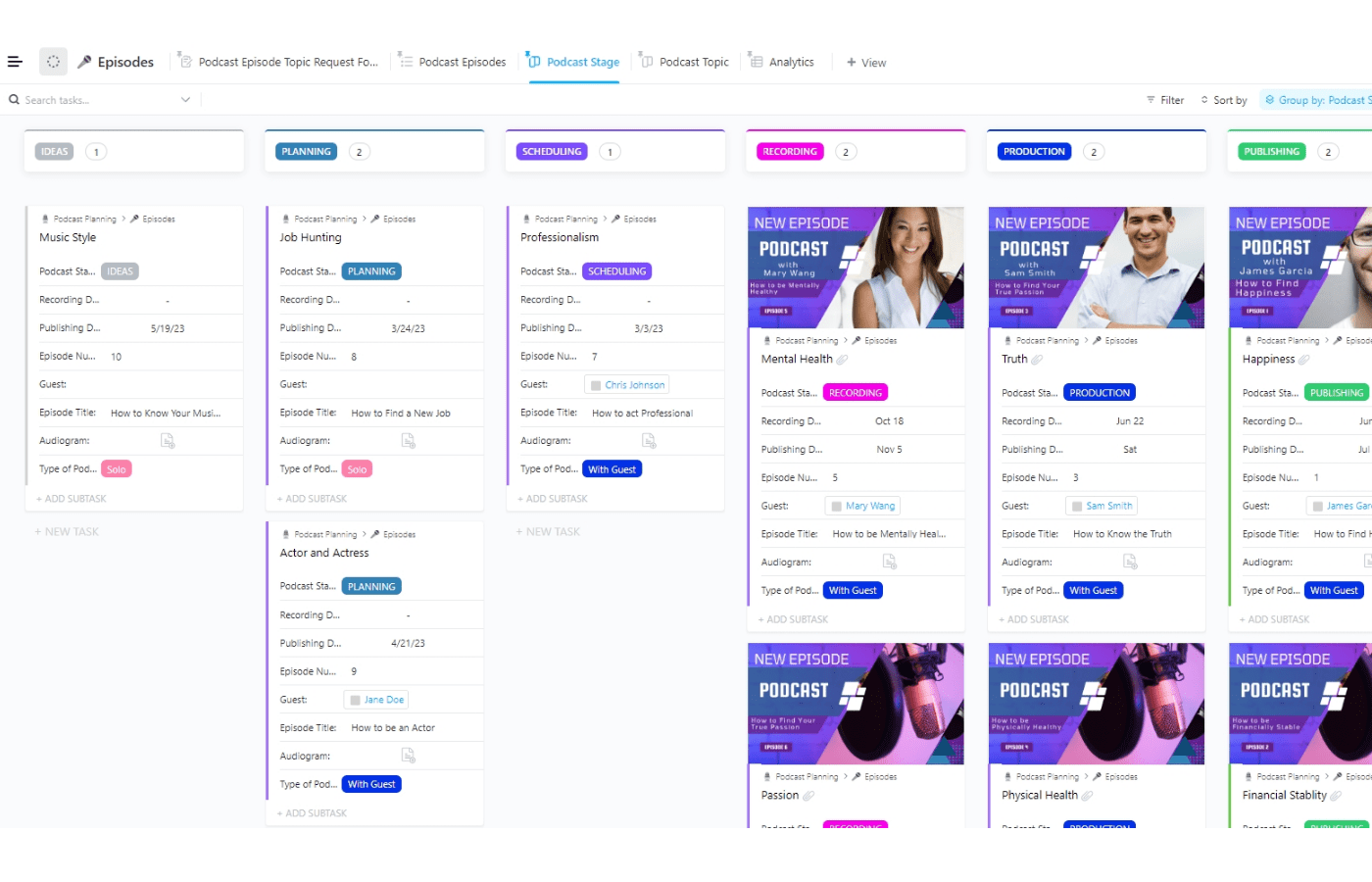KEY TAKEAWAYS
The world is changing fast, but when it comes to managing successful projects, many things stay tried and true. Ultimately, you want to foster a powerhouse project team that’s focused on objectives and responsive to new information. Here are eight key factors that can help make a project successful.
Clear Project Goals and Objectives
For starters, clear ways of measuring project success have to be in place and criteria for determining whether or not a project is successful have to be determined to help your team understand what you want to achieve — not just for your project but also for your client’s business or community.
Align with relevant stakeholders on your key performance indicators (KPIs), and if possible, keep them visible. As you arrive at critical decision points, go back to these goals to determine the best courses of action.
Read more: How to Write SMART Project Management Goals
Diligent Research and Data Gathering
One of the most important project success factors is the discovery phase, when project managers work closely with clients to gain more insight into their problems, industry, past initiatives, capabilities, and more. This will equip you with information to formulate better strategies and anticipate possible hurdles.
When projects start, it’s tempting to jump the gun and get to work. It’s exciting while you’re brimming with ideas. Plus, a quick and straightforward schedule can impress stakeholders.
However, it’s important to remember that the benefits of forgoing this critical stage are only temporary, and will quickly be eclipsed by their downsides. If you want to increase your chances of success, don’t skip the discovery phase!
Grounded Estimates and Plans
Unrealistic estimates and lofty promises are the most common ways project teams set themselves up for project failure. It can be tempting to give small, aggressive estimates because they seem to define the team members’ competence. But if you want to increase your project’s chance of success, you and your team may have to learn to set this ego aside or work around it.
Consider using good planning methods like planning poker, where discussions are encouraged around estimates. Look into your best, worst, and most realistic scenarios. Add padding and contingencies as needed. One of the best project planning practices is to conduct it according to how things are, not how you want things to be.
Optimized Workflow and Systems
Systems and workflows are set processes for your team to follow when implementing your project plans. They’re efficient ways to set expectations and manage communication. They also minimize confusion, which can be massively beneficial during the busiest phases.
Take the time to evaluate your workflow and system after critical phases of your project to spot inefficiencies. Check in with your team and stakeholders to identify areas you can automate and optimize project management strategies.
Barring extreme situations, it’s not advisable to do major overhauls in the middle of a project. Still, keep an eye on tweaks that can offer tremendous results.
Read more: Workflow Management Software and Tools
Real-Time Progress and Resource Tracking
Once you start executing project tasks, you’ll have a natural tendency to focus only on what’s at hand. But as the project manager, it’s your responsibility to keep your goals and project objectives in view. Without this presence of mind, you risk wasting resources and missing deadlines.
Nowadays, project management software is equipped with features for real-time task tracking and reporting, productivity monitoring, budget management and cost tracking, and more. Maximizing these features can enable you and your team to spot bottlenecks, foresee issues and delays, and stay in touch with your big objectives as you make incremental project progress.
Scope, Change, and Priority Management
With the rise of information overload, it can be tempting for teams and stakeholders to implement every new idea and iterate after every exciting insight. While project management methodologies such as Agile Scrum exist to welcome new findings and iterations, these iterations should still come with thorough discernment and evaluation.
Finding the balance between openness to new ideas and firmness against scope creep is critical for project managers. While change can be good, new changes in scope have to be evaluated against the project’s objectives and the availability of resources. Keep priorities clear to help your team manage their efforts — so they don’t go to waste.
Healthy Team Culture
If you’ve ever wondered how self-managing teams exist, then you’ve already stumbled upon the importance of healthy team culture.
A team’s culture defines what they consider normal and unusual. This influences their decisions and actions, regardless of whether they’re being supervised by management. Safety, empowerment, and accountability create a breeding ground for collaboration, constructive feedback, problem-solving, initiative, and grit.
Successfully maintaining this can help your team perform optimally, even when they’re left to their own devices.
Read more: Identifying & Managing Toxic Workplace Behaviors
Documentation and Knowledge Management
Another critical success factor in project management is constant improvement. In order for actions and decisions to be reviewed, they have to first be properly documented. Documentation can feel like an extra administrative task for project managers. But done right, it has many benefits.
Proper documentation and knowledge management can help you trace your team’s thought process. You can use this to communicate better with stakeholders, onboard new team members, and conduct object evaluations at the end of your project. Leveraging your previous findings in future projects is also made possible when these are adequately recorded.
Finally, documenting your project success can increase your team’s credibility and help you acquire more clients moving forward.
Check out these Project Management Courses from TechRepublic Academy!
A Solid Foundation Is Key to Project Success
The key to building an agile and productive team is providing a solid foundation with sound systems and values. This firm grounding in project management will empower project team members to explore new ideas, take risks, and ultimately succeed and innovate.





